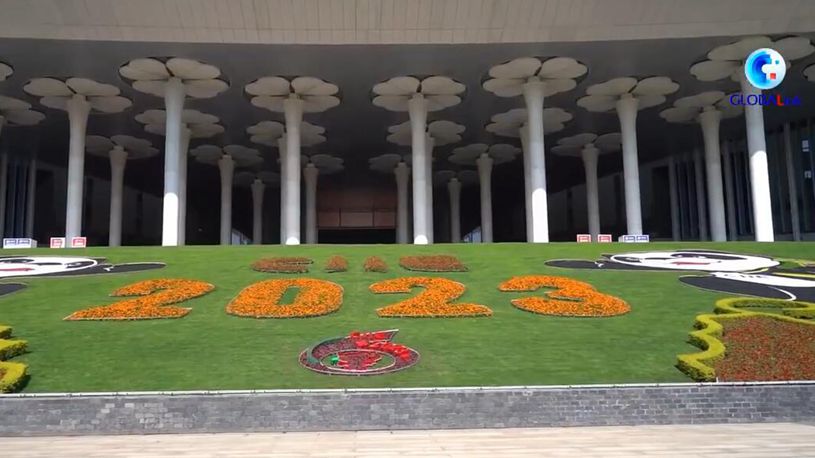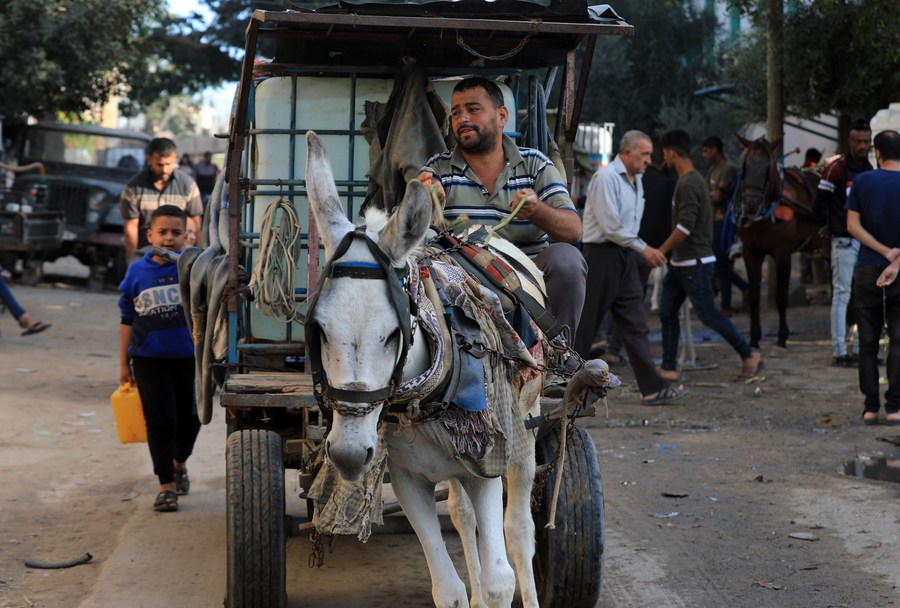
A man uses a donkey-drawn cart to transport water in the southern Gaza Strip city of Khan Younis on Oct. 30, 2023. (Photo by Yasser Qudih/Xinhua)
GAZA, Nov. 6 (Xinhua) -- For more than three weeks, Osama Siam, like many other Palestinians in Gaza, had to give up his car and resort to donkey carts only after fuels and other necessities were cut off by the Israelis amid the ongoing Hamas-Israel conflict.
Living in the al-Nusiarat refugee camp in the central Gaza Strip, he has to ride long distances in the besieged enclave to buy bread, flour, and water for his family and the people taking shelter under his roof.
Ever since Israel imposed a full blockade on the Gaza Strip on Oct. 9, Siam has failed to get any liter of fuel, even from the black markets, to start his 2022 Nissan.
"My life has completely turned upside down ... I lost everything: my house, my stability, and now my car has become useless," said the 47-year-old man.
"The war took us back to such a primitive life. Unthinkable, it is worse than a nightmare," he lamented.
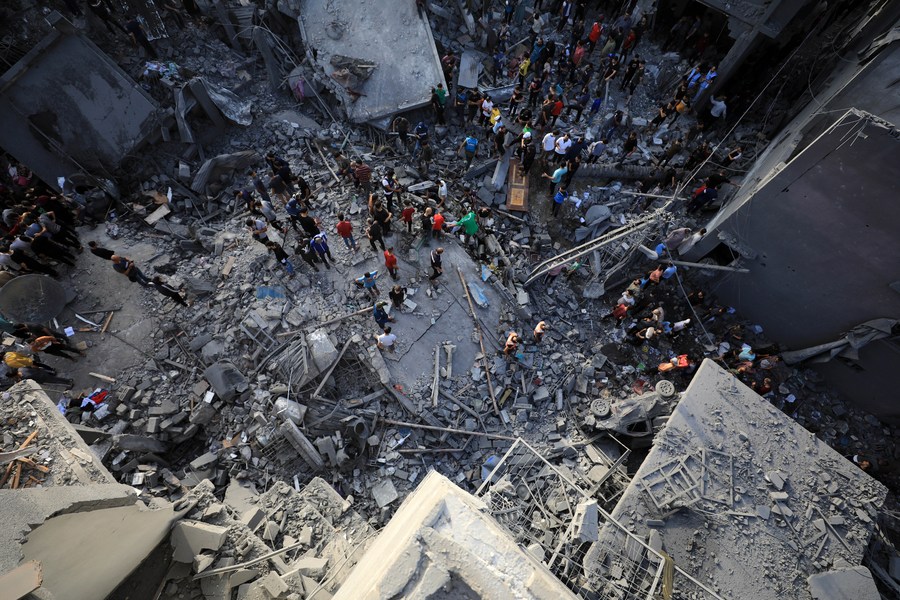
People check the damage caused by an Israeli strike at the al-Mughazi refugee camp in Deir al-Balah of the central Gaza Strip on Nov. 5, 2023. (Photo by Yasser Qudih/Xinhua)
The latest round of Hamas-Israel conflict started on Oct. 7, when Gaza-ruling Hamas launched a surprise attack on Israeli military targets and towns, prompting extensive Israeli airstrikes on Gaza.
The bloody confrontation has killed more than 11,000 people on both sides, leaving Gaza's infrastructure severely damaged and 1.4 million people internally displaced.
The United Nations Relief and Works Agency for Palestine Refugees (UNRWA) said Sunday that Gaza's social order has begun to collapse after weeks of war and a tight Israeli siege.
Thousands of people stormed a number of its warehouses and distribution centers in central and southern regions, and seized wheat flour and other basic survival materials, Tom White, director of UNRWA affairs in Gaza, said in a press statement.
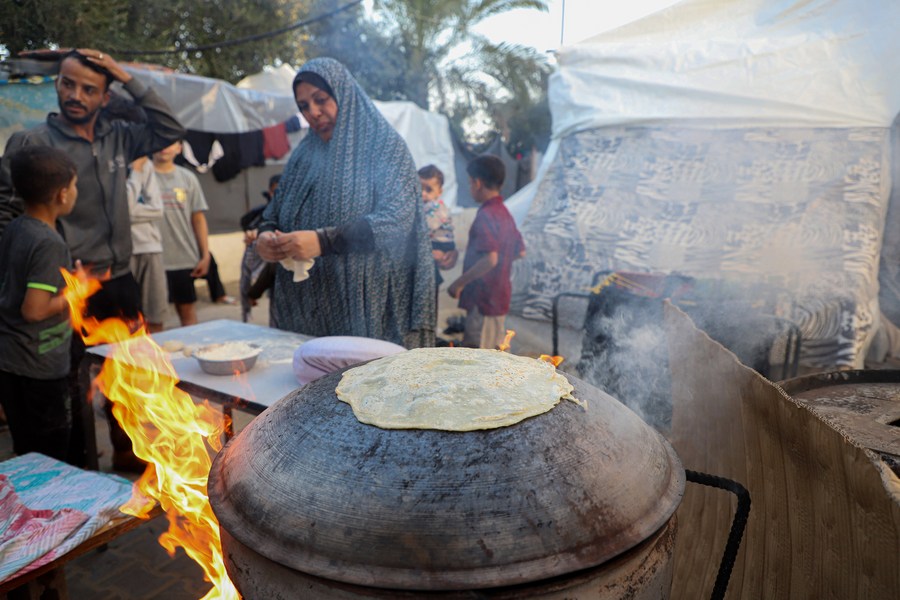
A woman makes bread inside one of the shelters for displaced people in the southern Gaza Strip city of Khan Younis, Nov. 5, 2023. (Photo by Rizek Abdeljawad/Xinhua)
Siam said his 140-square-meter house currently shelters some 35 relatives affected by the conflict.
His wife and other women had to cook big family meals over firewood instead of butane gas, with the choky smoke spewing all day round.
In Rafah, a southern city, locals waited with their donkeys during the evening hours outside schools-turned-shelter centers. One can hail a cart to drive over a short distance for a fee ranging between two and three U.S. dollars.
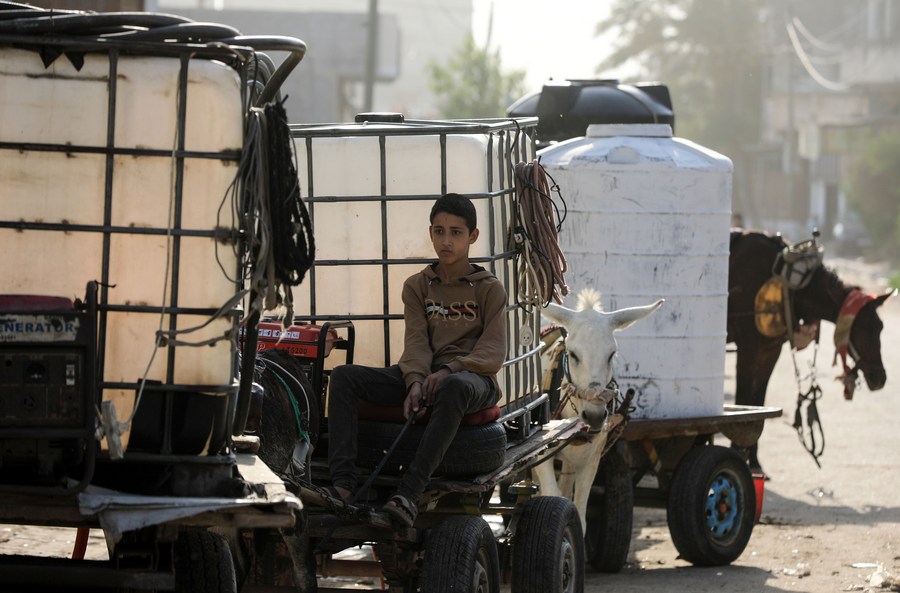
A boy sits on a donkey-drawn cart loaded with a water tank in the southern Gaza Strip city of Khan Younis on Oct. 30, 2023. (Photo by Yasser Qudih/Xinhua)
Among them, Ihsan Al-Rumaili said he had to earn some extra cash with the donkey as the humanitarian aid received was barely enough to feed the family.
"They give us small amounts of bread, cheese, and even some rice, but we do not have kitchens to cook the rice," he said.
His family of eight took shelter in a UNRWA center after an Israeli bomb destroyed their home in the city.
"Now, my donkey became my friend and the only source of income," he noted.
"We do not know when the war will finish and even after the war, we do not know when we can manage to rebuild our life to the way it used to be," Mona Sharara, a woman in Deir al-Balah, central Gaza, questioned.
Preparing to cook with a clay oven, she said, "We need decades to deal with the catastrophic and dire situation in Gaza." ■









